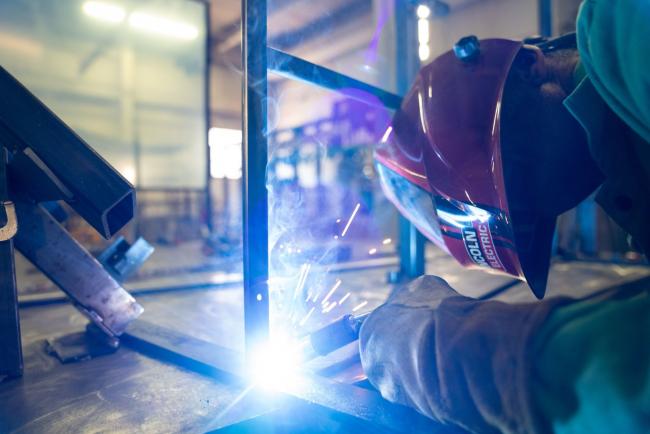(Bloomberg) -- The U.S. has a good chance of shucking off the secular stagnation of the last decade and entering a period of markedly faster economic growth as companies take advantage of lessons learned during the pandemic and strong demand fueled by the government to become more efficient.
That’s one of the takeaways from a new report by the research arm of global consultants McKinsey & Co. that takes an in-depth look at prospects across a swathe of industries, from construction to health care. It sees the potential for a 1 percentage-point acceleration in annual productivity growth over the next four years, roughly doubling the average increase seen in the post-financial-crisis expansion.
“It’s quite an optimistic picture,” Jan Mischke, a partner at the McKinsey Global Institute in Zurich and one of the authors of the report, said in an interview.
The super-charged federal budgetary boost championed by President Joe Biden plays a key role in the more upbeat future envisaged by McKinsey, as the high-pressure economy it fosters encourages companies to boost capacity by increasing research, development and investment.
Fresh off winning Congressional approval of a $1.9 trillion economic rescue package earlier this month, Biden is expected to unveil an additional multi-trillion program to rebuild the economy in a speech in Pittsburgh on Wednesday.
“This is about getting on a virtuous cycle where higher productivity fuels incomes and investments and that again fuels higher productivity,” Mischke said, adding that increased efficiency lessens the chances of the economy overheating by boosting its capacity to grow.
The 108-page report sees “early evidence of dynamic changes” to the economy as businesses were forced to take extraordinary measures to deal with the fallout from efforts to contain the pandemic. They range from increased automation of warehouses and more online marketing to wider use of telemedicine and digitization.
“The pandemic pushed companies to reorganize and become more agile,” the report said.
More than half of North American and European company executives contacted in a December survey by McKinsey said their speed of making and implementing decisions was somewhat or significantly faster compared with December 2019.
“The crisis has unleashed” more rapid change, Mischke said. “Digitization is happening in some instances 20 to 25 times faster than was thought possible prior to the crisis.”
While the advances in the U.S. have so far been concentrated among larger companies, the McKinsey Institute partner voiced hopes that they could spread to other firms, including small and medium-sized businesses. The industries with the biggest upside, according to the report, are health care, construction, information and technology, retail and pharmaceuticals.
Mischke was more measured in his assessment of the outlook for Europe than for the U.S. While the potential for big productivity gains exists there, it’s not clear whether the region’s economies will see the increased demand and dynamism that will help bring that about after the havoc wrought by the coronavirus.
“As the disruption eventually recedes, significant productivity acceleration could be possible if action taken by firms enhances productivity, if the action spreads, and if demand strengthens,” McKinsey Global Institute said, in summing up the results of its report.
©2021 Bloomberg L.P.

